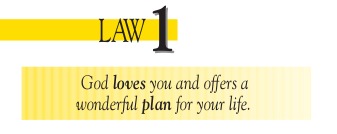Part 1 of this serialized interview with Kevin DeYoung’s book, Just Do Something, is here.

Q: Why do we have difficulty discovering God’s wonderful plan for our lives?
A: If the truth be told, God doesn’t really intend to tell us what it is.
Q: Does God not have a specific plan for our lives?
A: Yes, He does.
Q: Does God expect us to figure this plan out before we do anything?
A: No.
Q: Are you saying that God won’t help me make decisions?
A: No, God does help us. This is called wisdom.
Q: Doesn’t God care about my future?
A: He does.
Q: Is God not directing my path?
A: Yes, He does. I believe in providence.
Q: Why are many Christians desperate to find out God’s plan for their lives?
A: 5 reasons:
- We want to please God.
- Some of us are timid.
- We want perfect fufillment.
- We have too many choices.
- We are cowards.
Q: Could you flesh these reasons out more?
A: Sure. They are in chapter 3 of the book.
Q: What is the significance of the etymology of the word “decide”?
A: “Decide” comes from the Latin word decidere, meaning “to cut off”, which explains why decisions are so hard these days. We can’t stand the thought of cutting of any of our options. If we choose A, we feel the sting of not having B and C and D.
Q: The “will of God” is one of the most confusing phrases in the Christian vocabulary. Sometimes we speak of all things happening according to God’s will. Other times we talk about being obedient to doing the will of God. And still other times we talk about finding the will of God. Can you help clear up the confusion?
A: The phrase is used in at least three different ways, specified in the 3 sentences mentioned in the question. If we examine the Bible, we see that God’s will has 2 sides to it. On the first side is God’s will of decree. Everything that happens is according to God’s will, and what God wills, will happen. The other side of the coin is God’s will of desire. This refers to what God has commanded. It tells us what he desires from His creatures. If the will of decree is how things are, the will of desire is how things ought to be. There’s a third way in which we sometimes speak of God’s will. Most of the time we are looking for God’s will of direction.
Q: What is the significance of knowing God and his attributes and His will of decree and will of desire?
A: Knowing God’s character and his promises gives us confidence to take risks for His name’s sake, as Esther did. Becase we have confidence in God’s will of decree, we can radically commit ourselves to His will of desire, without fretting over a hidden will of direction. In other words, God does not take risks, so we can.

![just-do-something-nike-logo Nike's [Just Do It.] changed to [Just Do Something.]](https://hanz.files.wordpress.com/2009/08/just-do-something-nike.png?w=500&h=125)





You must be logged in to post a comment.